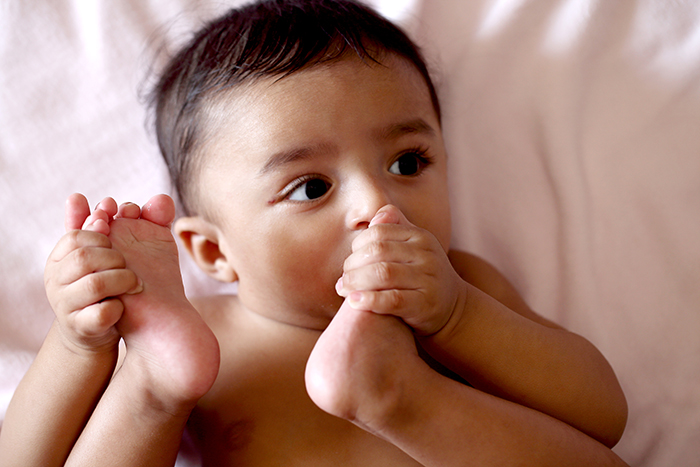
Pidyon haben (which means "redemption of the first-born son") refers to a traditional Jewish ritual that originated in ancient times. Although it is more commonly practiced among Orthodox and Conservative Jews, many Reform families also observe this ritual. However, because the Reform Movement does not recognize any special status for priests (known as Kohanim and considered to be direct male descendents of Aaron) or Levites (members of the tribe descended from Jacob's son Levi), it is not logical to demand the redemption of a first born son. When performed in Reform circles, pidyon haben is a symbol of a tradition and a tie to the past.
The ceremony derives from a series of biblical passages that portray God as laying claim to the first-born of both animals and human beings. Exodus 22:28-29 sets forth the command clearly: "You shall give Me the male first-born among your children. You shall do the same with your cattle and your flocks." The practical interpretation of this commandment led to the practice of dedicating all first-born things to God by bringing them to the Kohanim, the priests. First-born animals were offered as special sacrifices, while first-born sons entered the priesthood or priestly service. The original ceremony of pidyon haben took place one month after birth. First-born male children who were not children of Kohanim or Levites were symbolically released from priestly service through payment of five shekels of silver to one of the priests. The money was used to sustain the Temple, and parents returned to their homes with their offspring.
Most commonly, pidyon haben is observed for a child who is peter rechem, the "son that opens the womb," who is to be redeemed, so long as the child survives for 30 days. A son born naturally after the mother had previously given birth by a caesarean section is obligated, even if the actual first-born is a male. Also included are sons delivered in a pregnancy after the first pregnancy has miscarried during the first 40 days. If a man marries twice, the first-born son of each wife, according to tradition, must be redeemed.
What to Expect at a Pidyon Haben
The ceremony is held on the 30th day following birth. If the 30th day falls on Shabbat, a fast day, or a festival, the ceremony is delayed for 24 hours. The ritual is a home celebration, and family and friends are usually invited to take part.
A typical pidyon haben ceremony will include these components:
- The parents hand their son to a Kohein, the priest,who symbolically represents the ancient priesthood.
- They recite a formula in Hebrew meaning: "This is our first-born son, and the Holy One, blessed be God, has commanded us to redeem him."
- The Kohein asks the parents: "Which would you rather do-give me your first-born son, the first-born of his mother, or redeem him for five shekels, as you are obligated to give according to the Torah?"
- The parents respond: "We prefer to redeem our son. And here is his redemption price, which we must give according to the Torah."
- The parents then give the Kohein a sum of money, usually $5. The Kohein takes the money and hands the baby back to his parents.
- The parents recite two blessings,one regarding the mitzvah of pidyon haben the other the Shehecheyanu, to thank God for bringing them to this occasion.
- The Kohein places the money on the child's head and says: "This for that, this in commutation of that, this in remission of that." He then invokes a blessing, wishing the child a life filled with Torah, a happy marriage, and performance of good deeds. The Priestly Benediction and the Kiddush over the wine, then conclude the ceremony.
In recent years, some couples have created personal rituals for their first-born daughters that are parallel to pidyon haben. Families that choose to have a pidyon haben ceremony-whether for a son or a daughter-find it to be a meaningful expression of thanks to God for a child, and its ties to the history of our people make it an appropriate subject of study for us all.
Explore Jewish Life and Get Inspired
Subscribe for Emails
